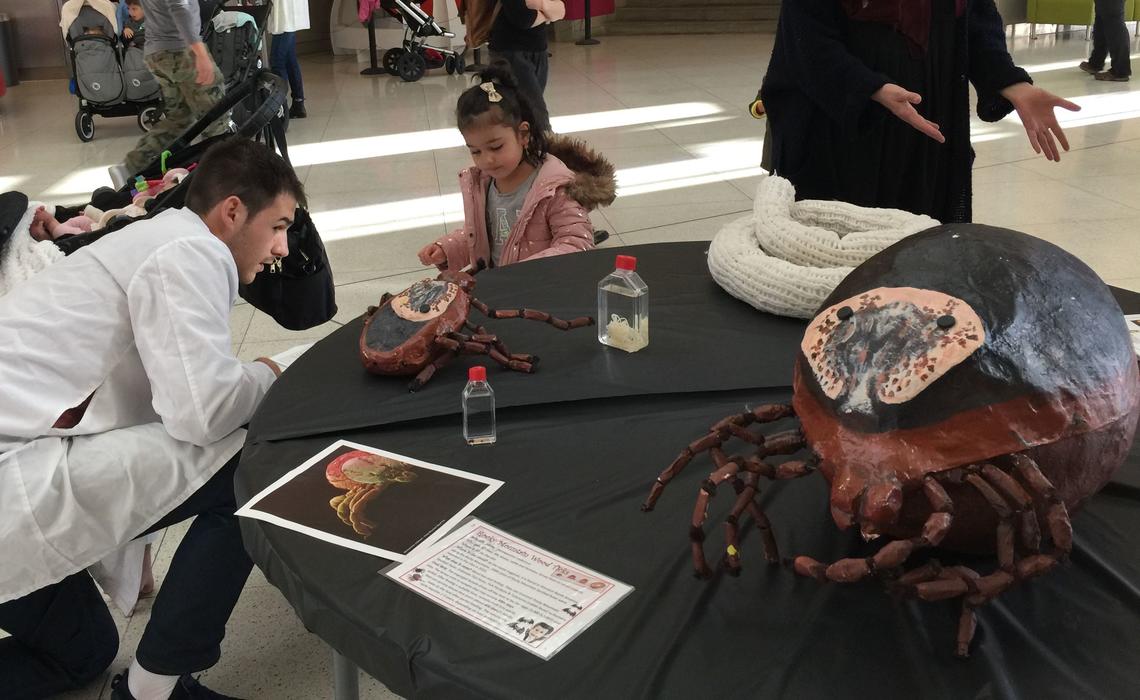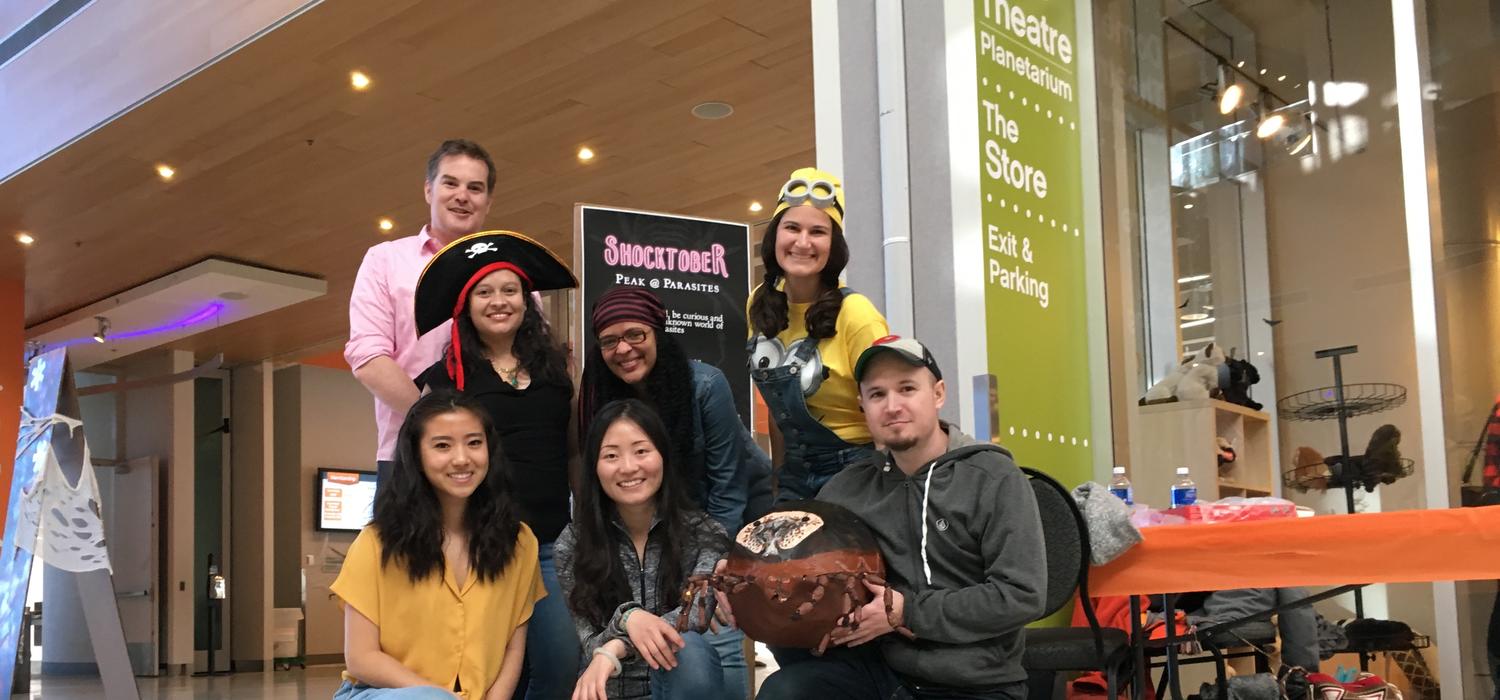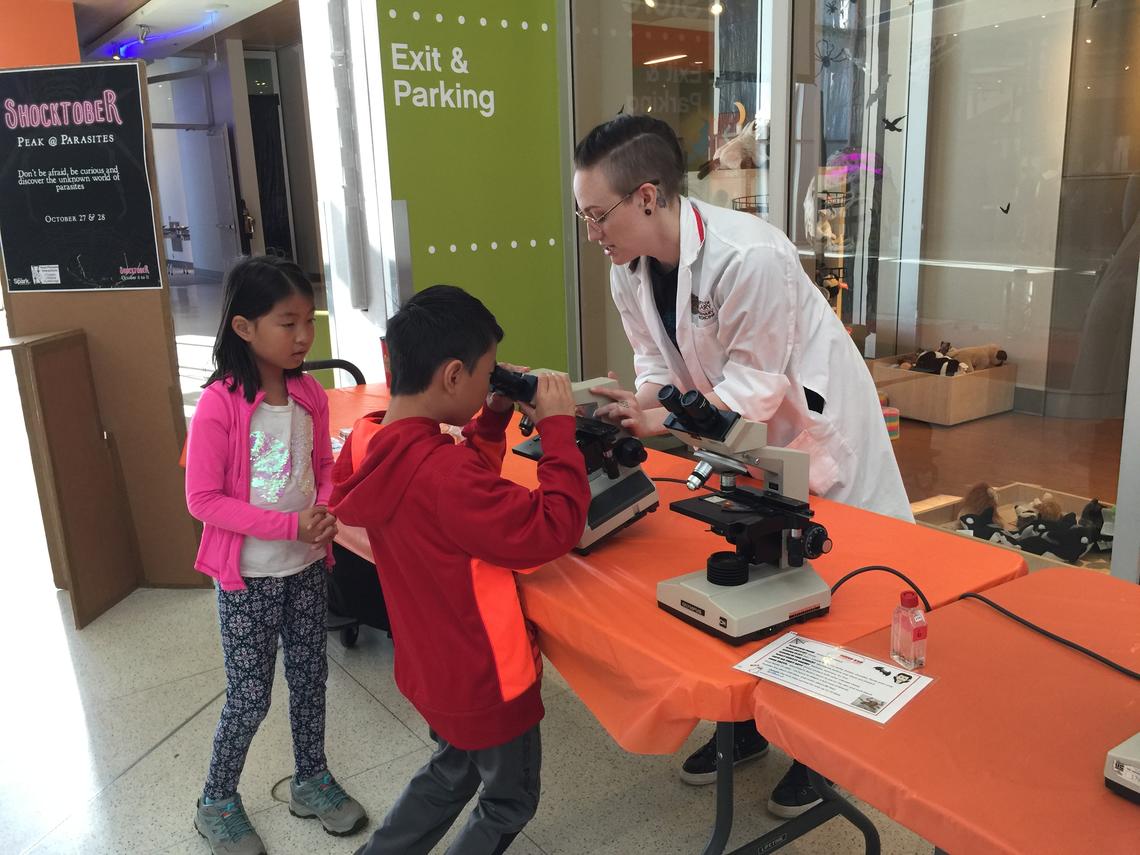
Host-Parasite Interactions' Adam Shute explains ticks and parasitic worms to a fearless youngster.
John Gilleard
Oct. 31, 2018

A pumpkin-sized monster of a tick. Giant roundworms in jars. Single cell parasites visible only under a microscope.
These and other creepy parasitic delights were part of an interactive display put on by graduate students and postdoctoral trainees with the Host-Parasite Interactions (HPI) program at the annual TELUS Spark Monster Mash-up weekend.
The family event explores the science behind scary things like parasitic worms, ticks and microscopic protozoa. Hands-on activities included an Operation-style game where kids picked out plastic parasites from different parts of a model character in order to get information.

Host-Parasite Interactions' Adam Shute explains ticks and parasitic worms to a fearless youngster.
John Gilleard
Frightening fun with parasites
“These kind of events are a fun way to educate people about the major impacts that parasites have on human and animal health,” says Dr. John Gilleard, PhD, an HPI faculty member with the Faculty of Veterinary Medicine (UCVM). “The younger kids love the scary aspects, visuals and games, and the parents are often fascinated by discussions of the research and teaching that goes on at the University of Calgary.
“It has become a regular highlight of our HPI community engagement program, being the fifth time we have participated. The public at the event range from toddlers to grandparents and so it is a great way for our trainees to develop a whole variety of communication skills.”
Susan Wang was the lead organizer of a group of HPI trainees who took part in the two-day event. “It was a unique experience to co-ordinate the volunteers and be inspired by my peers enthusiastically articulating the intricacies of parasite life cycles to the public,” says Wang, a graduate student supervised by Dr. Derek McKay, PhD, Cumming School of Medicine. “It’s a valuable educational experience for the both the public and the students.”

Teeny tiny parasites. Kaylee Rich helps kids get a close-up look at some microscopic parasites.
John Gilleard
Taking science to the public
It’s this kind of community engagement that helped earn the HPI team of trainees and faculty the 2018 Public Education Award from the Canadian Society of Zoologists. The award is given annually for outstanding contributions in taking science to the Canadian public.
“The award is well-deserved recognition for the amazing work of our students in community engagement over a sustained period,” says Dr. James Wasmuth, PhD, an HPI faculty member at UCVM.
The HPI program was founded by an NSERC-CREATE award to a number of faculty members at the University of Calgary in 2012 and has more recently been broadened to include groups working on parasites at the University of Lethbridge and the University of Alberta. The program prepares research trainees to tackle global issues such as parasite control, drug resistance, ecosystem impacts, immunology, and food and water safety.